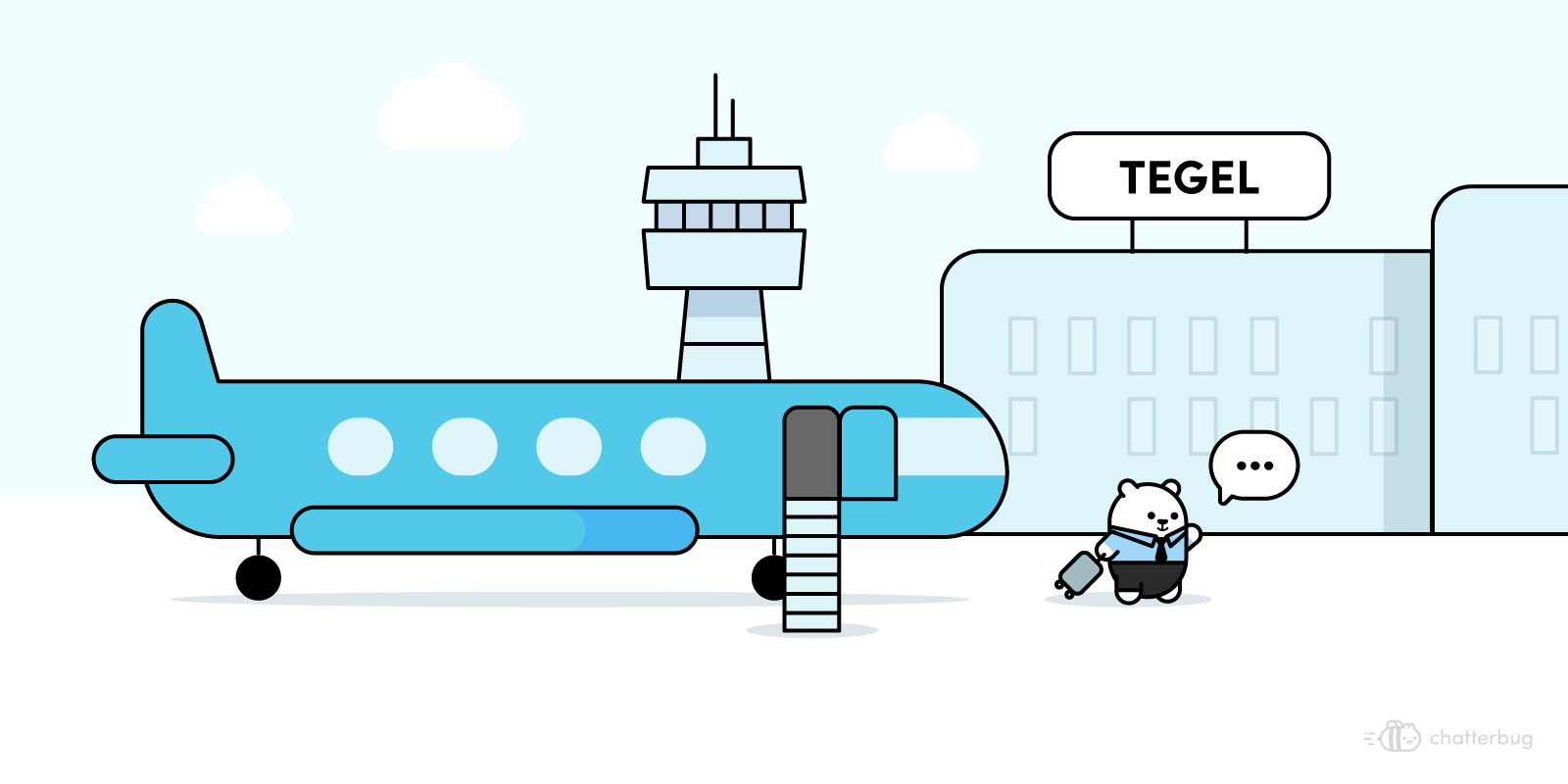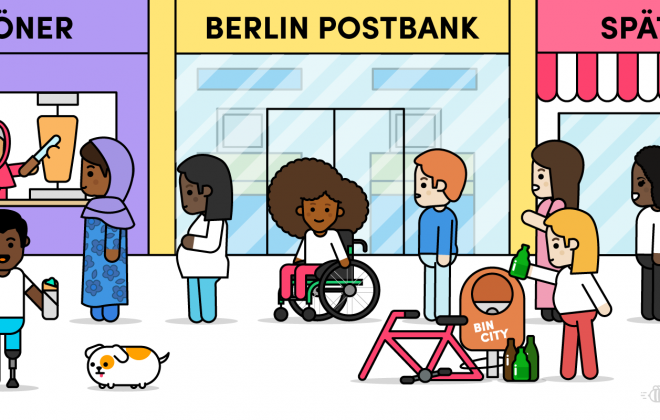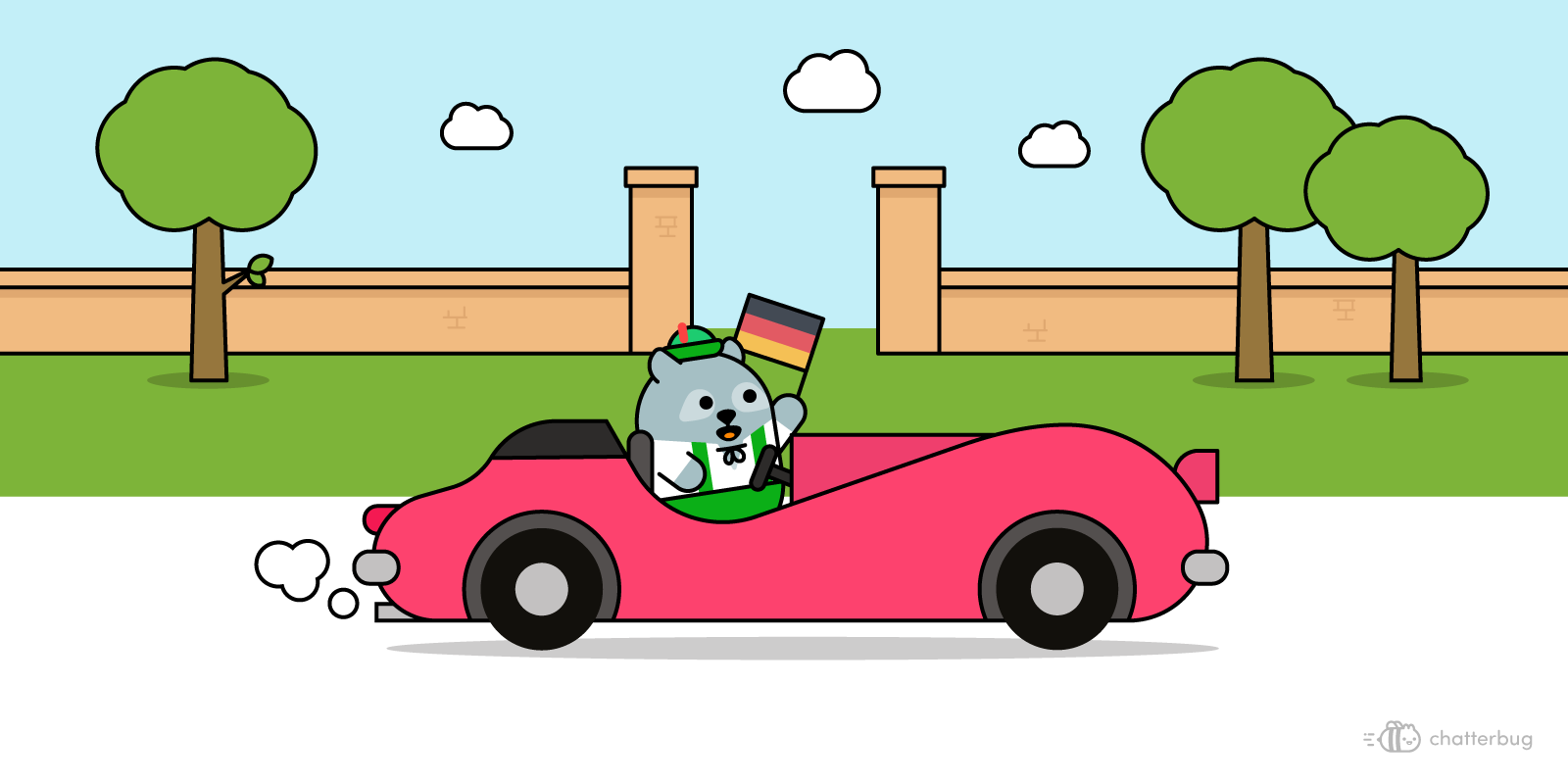Working in Germany: What do you need?
The day has arrived. You’ve landed in Germany! You step off that plane with a pocket full of dreams (and if you’re non-EU, a bank balance full of change, as per your visa requirements).
Your backpack is heavy with books on German grammar. Your heart is full of hope. But as you begin this new phase, two questions preoccupy you:
What do you need to start working in Germany? And how much German do you really need to be able to work in Germany?
(Before I go on, I must add that we all have friends who have lived in Berlin for close to a decade yet can barely order a drink. Germany’s capital city is undoubtedly a haven for English-speakers who’ve yet to get their heads around German. But even if you plan to find a job that only requires English, there are some things you’ll need in place before you start.)
What jobs are needed in Germany?
Germany has one of the lowest unemployment rates in the EU. Having a university degree or a similar qualification will stand you in good stead.
In 2020, there are plenty of available positions for medical professionals, engineers, graduates in mathematics, information technology, natural sciences and technology, industrial mechanics, retail and geriatric nursing.
What type of work-contract can you get?
Fixed-term or permanent contract
In Germany, work contracts are typically for 35-40 hours per week, and according to the Working Hours Act, employees cannot exceed 48 hours a week.
Student job
A student enrolled on a course at a German university is able to take work as a Werkstudent. These jobs permit students to work a maximum of 20 hours a week during semesters and up to 40 hours a week in the semester breaks. The average salary is 12 euros an hour.
Mini job
A mini-job in Germany is a particular kind of employment that limits workers to earn no more than 450 euros a month, making the employee exempt from income tax.
Finding a new job can be overwhelming and stressful, particularly in a foreign country. See below for our checklist so you can get started.

Checklist for working in Germany:
1. A Visa
If you’re an EU citizen: Thanks to Freedom of Movement, members of EU Member States can work in Germany without a work permit or visa.
If you’re a Non-EU citizen: If you’re from a country that lies outside of the EU then to work in an EU Member State you will need to apply for a Germany Long-Stay Visa.
There are lots of different types of visas which can you can read up on here, but here are some of the most common:
Working Visa: You have been offered a job contract already.
Job Seeker Visa: You plan to look for a job while you’re in Germany (this visa lasts for 6 months). You need a Bachelor or Master’s Degree and proof of sufficient funds to cover your stay.
Self-Employment Visa: You plan to start a business or work as a freelancer.
2. Have your qualifications recognised
If the roles you are applying for require qualifications (eg. a nurse or a teacher), you will need them recognised by the appropriate authority.
This website will tell you which authority is in charge of your recognition procedure. Once you have determined which authority you need to go through, the website above will give detailed instructions of how to proceed, including which documents you must send in and a breakdown of the different results.
3. A Tax Number
In order to get a tax number (Identifikationsnummer), you need to Anmeldung. This means registering your address.
You have to register your address at your local Bürgeramt within 14 days of moving to your new place. The appointments get booked up quickly. People often cancel their appointments, so if you need to register ASAP, a good tip is to log on early and look for same day slots.
4. Health Insurance
In Germany it is compulsory to have health insurance. You can be insured by a private insurer, a public one or a combination of the two.
For public healthcare, you can easily sign up to AOK or TK online (you will need a bank account – see below).
5. A Bank Account
While opportunities to pay with card in Germany seem few and far between in Germany, you’ll still need a bank account if you want to get paid.
If you’re wondering which bank to choose, Deutsche Bank, Hypovereinsbankand Commerzbank are the biggest banks in Germany.
You also have the option to open an online-only bank account. N26 is a popular option amongst English speakers as the process is all done in English and online, so you can avoid an in-person appointment if you’re too nervous to speak German.
And here’s the big question…

Do you need to be able to speak German to work in Germany?
Knowing German is undoubtedly useful if you’re going to live in Germany, but you don’t need to reach native level to get a job.
3% of the jobs in Germany are in English. This might sound tiny, but a quick search on Indeed, English Jobs DE, and Glassdoor shows tens of thousands of job listing for English-speaking jobs all over Germany. The Local also has a page dedicated to helping you find English-language jobs in Germany. According to career coach Chris Pyak, a large amount of jobs in Germany for those with a university degree can be done in English. That isn’t to say that a lack of German won’t hold you back.
In the country’s capital, English is ubiquitous. Navigating your way around Berlin is as easily done in English as it is in German. With the exception of bureaucratic matters, lacking German fluency is unlikely to hold you back. Beyond Berlin’s borders, however, this is a different matter.

When applying for work in Germany, it is important to consider the kind of field you want to work in. Some fields that require fluency in English are: science, academia, online business, tourism, diplomacy, management consultancy and finance. But the need for English fluency doesn’t negate the need to know German. For example, client-facing roles will require you to speak the language of your clients. If you’re in Germany, you can expect them to be German. Beyond this, if you’re living in Germany, the people you interact with outside of your job will be speaking German. Being able to understand the people you encounter during simple, day-to-day tasks like grocery shopping will make everything simpler.
So if you’re thinking about living and working in Germany, even if the job you have in mind doesn’t require you to speak German, you’re life will be easier if you’re able to communicate with those around you. Why not start learning? It won’t hurt!
Want to learn more?
If you’re feeling inspired, sign up below for a free two-week trial and a Live Lesson with a private qualified tutor to start speaking a new language for real! Our classes are structured around exercises created by language teachers, so there’ll be no awkward silences – we promise! 😉
And don’t forget to check out our Facebook, Twitter and Instagram pages for more language content!



